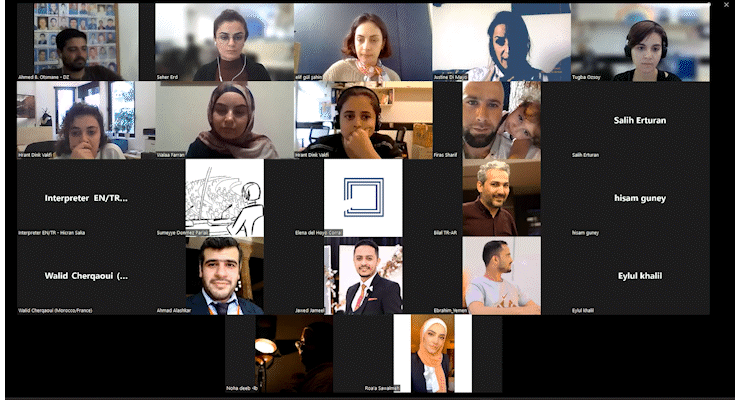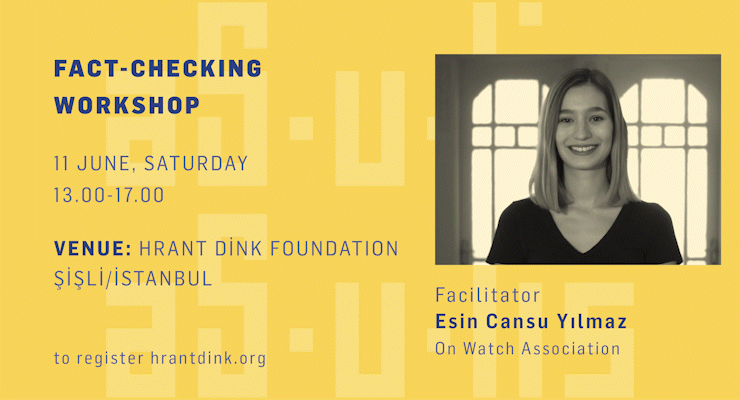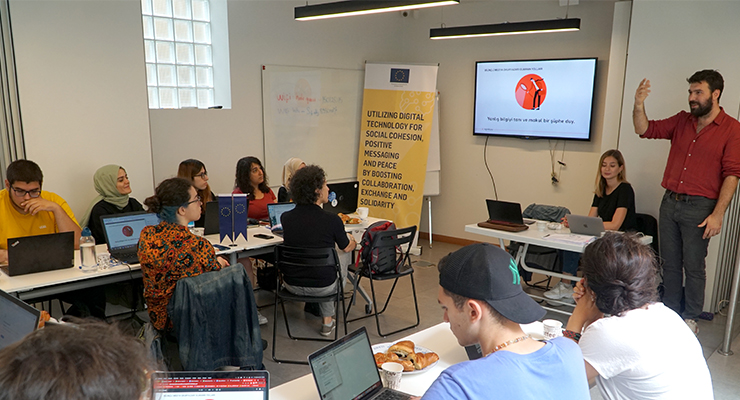In cooperation with the Boğaziçi University and Sabanci University, the Hrant Dink Foundation is implementing the project entitled “Utilizing Digital Technology for Social Cohesion, Positive Messaging and Peace by Boosting Collaboration, Exchange and Solidarity” funded by the European Union represented by the European Commission and by the Friedrich Naumann Foundation.
The Middle East Region Hate Speech Inclusive Discourse Meeting was held at the Hrant Dink Foundation with the collaboration of the International Coalition of Sites of Conscience Europe on 20-21-22 July 2022 in Havak Hall with the attendance of the project’s participating CSOs and institutions from both the Middle East region and Turkey that work on discrimination, refugee rights, democracy, equality, human rights, discriminatory discourse, and hate speech. The goals of the meeting were to improve the capacity of CSOs operating in the Middle East region in monitoring and documenting hate speech, and to inform participants about the general situation of hate speech in the Middle East, the groups who are most affected, and the general situation regarding the consequences of hate speech.
On the first day, participants introduced their organisations and presented the situation of hate speech in their countries. Afterward, Yasemin Korkmaz from the Hrant Dink Foundation made a presentation about the foundation's work on hate speech for more than 10 years. Roula Mikhael, the consultant from the ICSC, talked about the overview of hate speech in the MENA region in her presentation. Prof. Dr. Berrin Yanıkoğlu from Sabancı University Centre of Excellence in Data Analytics (VERIM) and Dr. Zied Kechaou from ENIS shared their experiences on how to combat hate speech using artificial intelligence technology.
On the second day of the kick-off meeting, Elif Gül Şahin from the Hrant Dink Foundation organised an inclusive language workshop on the topics of learning about discrimination, its sources, and social problems it caused, hate speech, as well as how to build inclusive discourse. In this workshop, which was prepared with the non-formal education method, group studies, group presentations, and different activities were carried out. While learning about discrimination, prejudices, and different forms of hate speech, the participants had hands-on exercises that helped them to identify hate speech from various news reports and to build their own inclusive discourse campaign.
On the third day of the kick-off meeting, 23,5 Hrant Dink Site of Memory was visited by the participants. Afterward a closing meeting was held to evaluate the workshops and discuss the next steps to be taken to implement projects on documenting and raising awareness on hate speech in the MENA region.
One of the next steps in the scope of the Project is to contribute to the capacity building of youth professionals and activists who work in the CSOs in the Middle East region in monitoring, documenting, and raising awareness of hate speech, and promoting the spread of inclusive discourse. In this context, an online workshop series will be organised with the participation of youth from different countries in the Middle East as of September.

This project is financed by the European Union.




